| The structural pests in the Northwest of greatest concern are all dependent on high moisture content in the wood.
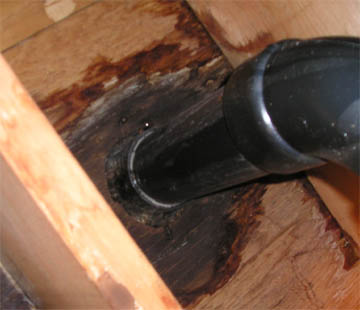 This moisture can come from rain, soil, water supply lines and drains. All these possible sources need to be addressed or there will certainly be a problem. Around here, keep it dry and them pests will usually keep away. This is a picture from under a toilet. We checked it before we got in the crawlspace, and noted that it was loose. This nearly always leads to leaks and if not promptly addressed, wood decay. Such leaks are sometimes not so obvious especially if there is insulation and or wall-board installed. This moisture can come from rain, soil, water supply lines and drains. All these possible sources need to be addressed or there will certainly be a problem. Around here, keep it dry and them pests will usually keep away. This is a picture from under a toilet. We checked it before we got in the crawlspace, and noted that it was loose. This nearly always leads to leaks and if not promptly addressed, wood decay. Such leaks are sometimes not so obvious especially if there is insulation and or wall-board installed. 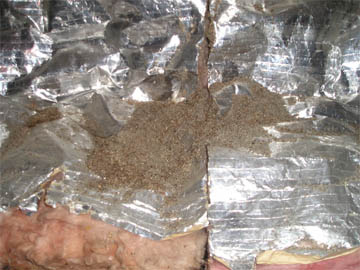 This is frass, debris or excrement produced by insects. This piles were in regular intervals along the base of the homes exterior wall. After carefully looking at it, we determined that it was not sand and the regular intervals aligned perfectly with the floor joists. I removed some of the insulation that covered the rim on the outside of the building and I found moisture ants, lots of them and extensive damage to the structure. There were about 15 joists visible, and 15 neat piles of frass. This is frass, debris or excrement produced by insects. This piles were in regular intervals along the base of the homes exterior wall. After carefully looking at it, we determined that it was not sand and the regular intervals aligned perfectly with the floor joists. I removed some of the insulation that covered the rim on the outside of the building and I found moisture ants, lots of them and extensive damage to the structure. There were about 15 joists visible, and 15 neat piles of frass.
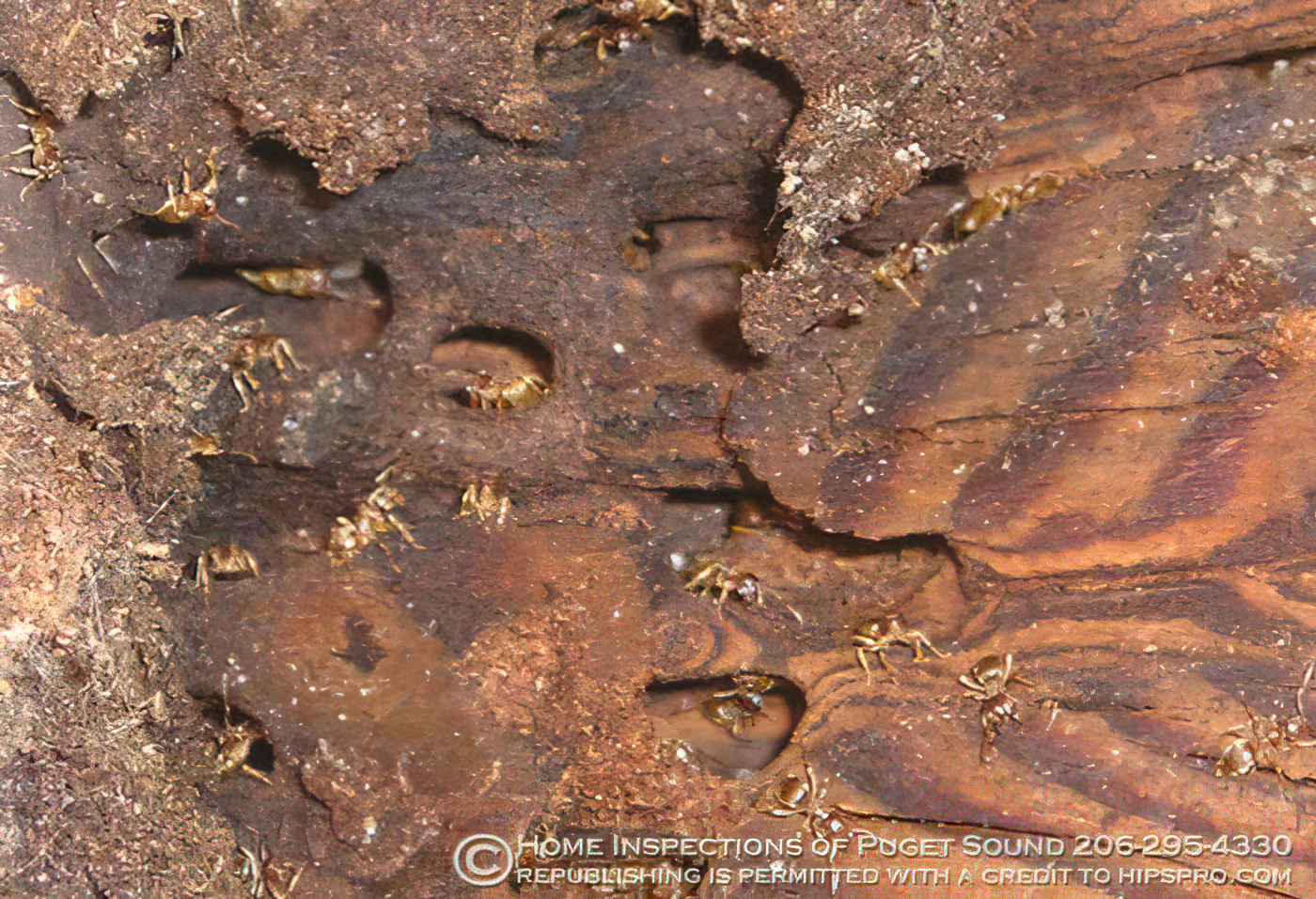 Every single joist we looked at was covered in these pesky pests at this end of the home. We took careful note of this area of the home and proceeded to explore the exterior to determine what were the contributing problems that causes this infestations. Every single joist we looked at was covered in these pesky pests at this end of the home. We took careful note of this area of the home and proceeded to explore the exterior to determine what were the contributing problems that causes this infestations.
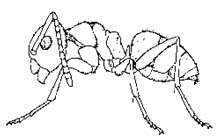
"Most pest species are yellow; they can vary to a rather dark brown, from 3–5 mm long. These are monomorphic species having workers all the same size. Maxillary palpi are long and five-segmented. Colonies usually occur in decayed logs and stumps, but some may be found in soil" WSU Extension Bulletin 1382
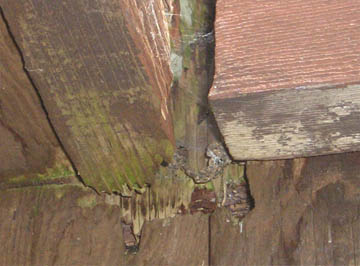 Upon further investigation we noticed that the grade next to the home on this side was sloped the wrong way, trapping water next to the home. The gutters and downspouts were in poor condition, and there was other visible damage on the siding. The exterior of this home had been neglected for years, having plants touching the structure is several places, deck framing in poor condition, and need of paint and caulk Inside the crawlspace we found more frass, and bare earth. Upon further investigation we noticed that the grade next to the home on this side was sloped the wrong way, trapping water next to the home. The gutters and downspouts were in poor condition, and there was other visible damage on the siding. The exterior of this home had been neglected for years, having plants touching the structure is several places, deck framing in poor condition, and need of paint and caulk Inside the crawlspace we found more frass, and bare earth.
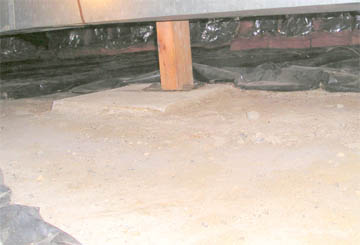 All soil under homes should be covered with plastic. This vapor barrier will help control the moisture that can evaporate under the home and bringing up the moisture content up to the point of being susceptible to wood destroying organisms. All soil under homes should be covered with plastic. This vapor barrier will help control the moisture that can evaporate under the home and bringing up the moisture content up to the point of being susceptible to wood destroying organisms.
Never buy a home without a complete wood destroying organism report 
If you find this information useful, don't keep us a secret! List us on any of your favorite networking / bookmarking sites

| 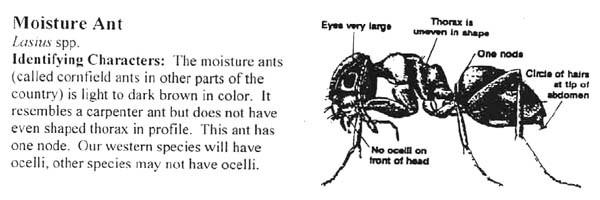


![]()
![]()
